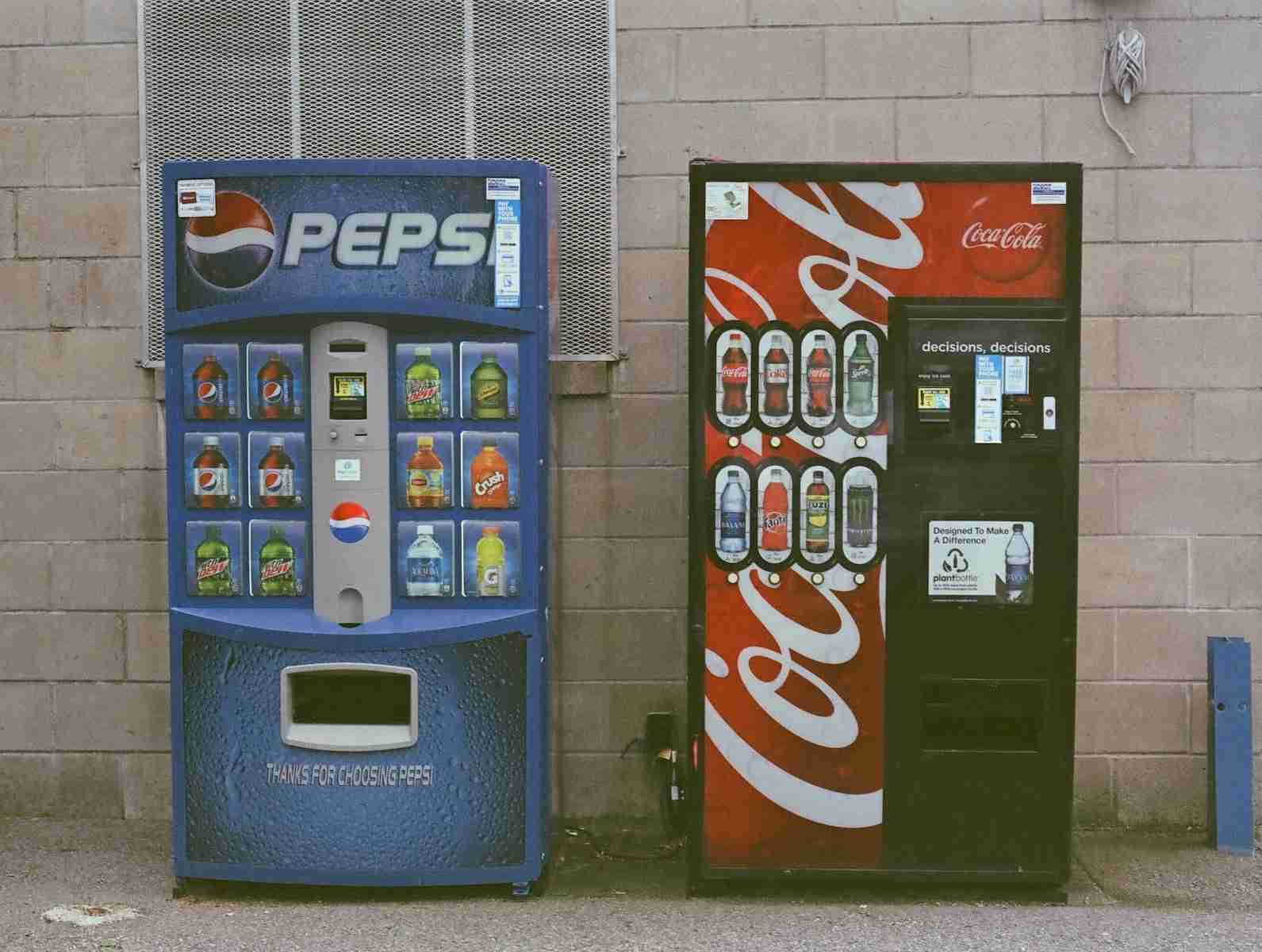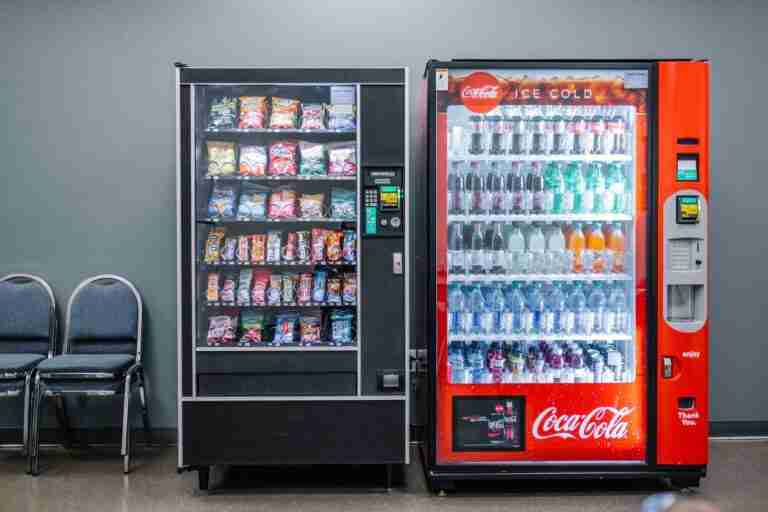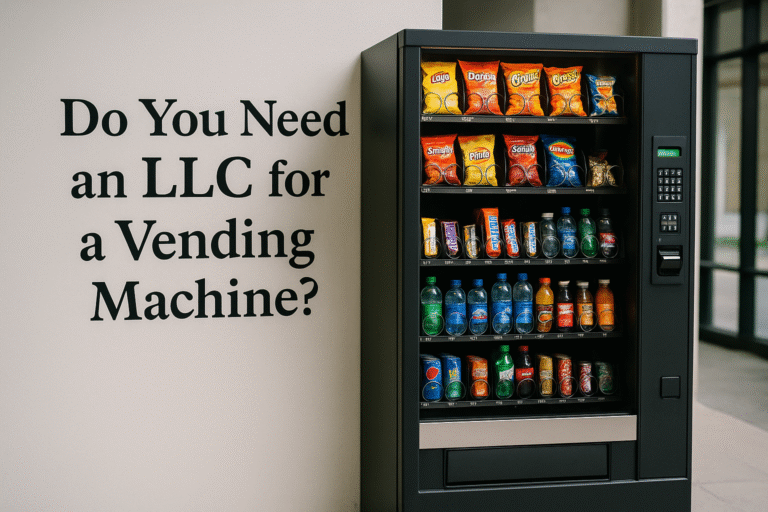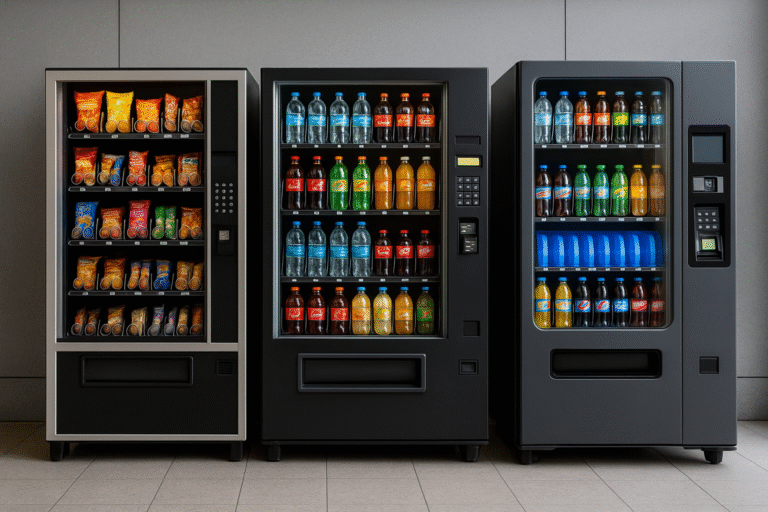¡Envío fijo a Puerto Rico: $1,200 en tu primera máquina y solo $375 por cada adicional! Envíanos un WhatsApp
From Dream to Reality: AStep-by-Step Guide to Launching Your Vending Machine Business

Starting a vending machine business might seem like a straightforward endeavor. However, as with any business, its success depends on careful planning, keen insights, and strategic actions. As an entrepreneur, understanding the market, choosing the right equipment, and optimizing operations are vital steps in transforming this dream into a profitable reality.
Understanding the Market Landscape
The world of vending machines is dynamic, with each locality presenting unique opportunities and challenges. Before diving in, it’s essential to grasp the nuances of your target market. This includes understanding the local population’s product preferences, payment methods, and spending habits. Comprehensive research, which can involve surveys, firsthand observations, or digital tools, will provide a wealth of information.
Recognizing areas of opportunity is the next logical step. Maybe there’s a neighborhood that lacks vending services or another saturated with outdated models. Such insights can give a competitive edge, allowing one to tap into untapped markets. Beyond just identifying locations, understanding the products in demand, from healthy snacks to energy drinks, can make a difference.
However, this research isn’t solely about identifying opportunities. It’s equally crucial to evaluate the competition. What products are they offering? How have they priced them? What are their operational strengths and challenges? Gaining such insights helps in strategizing and positioning your business to capture a substantial market share.
Choosing the Right Vending Machine
Venturing into the vending machine business requires the right equipment. Today, the choices are vast, ranging from basic candy-dispensing units to sophisticated multi-product machines. The selection process should be guided by the target audience’s needs. For instance, a machine that accepts both cash and digital payments might be ideal for tech hubs or university campuses.
Beyond functionality, there are other factors to consider. How energy efficient is the machine? What’s its maintenance requirement? Frequent breakdowns or high energy costs can erode profitability. Hence, it’s crucial to strike a balance between initial costs, features, and long-term operational expenses. Additionally, ensuring the chosen machine comes with a robust warranty can safeguard against unforeseen expenses.
Lastly, while initial costs are a significant factor, it’s essential not to compromise on quality. A reliable, efficient machine might have higher upfront costs but will prove cost-effective in the long run. Investing in quality ensures fewer breakdowns, higher customer satisfaction, and, consequently, better business returns.
Finding Reliable Suppliers
The backbone of any vending machine business is its suppliers. Whether it’s the machines themselves or the products they vend, having a trustworthy supplier is essential. Building strong relationships with these suppliers can lead to better deals, consistent stock, and timely deliveries. For an entrepreneur, this means fewer operational hitches and better profit margins.
However, it’s not just about finding a good supplier; it’s about building a network. Having backup suppliers is crucial. Unforeseen disruptions, whether due to production issues or logistical challenges, can hamper business. With a robust supplier network, you ensure that your business remains operational even if one supplier faces challenges.
Negotiations play a crucial role in this business aspect. Securing bulk deals, long-term contracts, or even exclusive product rights can give your vending machine business a distinct edge. It’s not just about getting products at reduced rates; it’s about ensuring consistent quality and timely restocking, which directly impacts customer satisfaction and business growth.
Selecting Optimal Locations
The success of a vending machine is, in many ways, determined by its location. High footfall areas, whether they’re office complexes, universities, or transport hubs, offer the most potential. However, it’s not just about footfall. It’s about ensuring the product offerings resonate with the location’s demographic. For instance, a machine in a gym might need to stock up on protein bars and electrolyte drinks.
While identifying such locations is a start, securing them is another challenge. Prime spots are often in demand, and this could lead to competition. Effective negotiation skills, understanding of rental agreements, and even forming partnerships with property owners can be essential strategies. Offering a revenue share or exclusive deals can sometimes tip the scales in your favor.
Beyond the initial location selection, it’s crucial to monitor machine performance. Some locations might seem ideal on paper but might not yield the expected returns. Periodic reviews, adapting to feedback, and being open to relocation are essential aspects of ensuring optimal machine placement. This dynamic approach ensures that the business remains profitable and relevant.
Deciding on the Product Mix
Once locations are secured, attention shifts to stocking the machines. The product mix is vital. It’s not about cramming the machine with a variety of products but about curating a selection that caters to the target audience. Insights from market research come into play here, helping select products that are in demand and are likely to be top sellers.
However, it’s not a set-it-and-forget-it scenario. Consumer preferences evolve, and what’s popular today might not be tomorrow. Regularly reviewing sales data, gathering customer feedback, and being open to introducing new products ensures that the machine remains relevant. Moreover, seasonal changes can influence product demand. For instance, cold drinks might be more popular during summer, while hot beverages might see a spike in demand during colder months.
Lastly, pricing plays a pivotal role. While it’s essential to ensure profitability, overpricing can deter potential customers. Striking a balance between competitive pricing, product quality, and profitability is a nuanced challenge. Regular market surveys, understanding competitor pricing, and even offering occasional discounts or promotions can keep the product mix attractive and profitable.
Financing Your Vending Machine Business
Venturing into the vending machine business requires capital. Whether it’s purchasing the machines, stocking them up, or securing rental agreements, expenses can add up. As an entrepreneur, understanding various financing options can pave the way for a smoother launch. Traditional bank loans, though a common avenue, might not always be the best fit due to their stringent requirements and long approval times.
There are other avenues worth exploring, like microloans, credit unions, or specialized business loans. For those wary of accumulating debt, bootstrapping – or self-funding – is another method, though it might limit the scale of the initial launch. Crowdfunding platforms have also emerged as a popular financing alternative, allowing entrepreneurs to raise capital by pitching their business idea to the public.
Of course, while securing funding is crucial, managing finances efficiently is equally vital. Keeping track of expenditures, ensuring timely repayments, and consistently monitoring financial health using tools or hiring professionals can go a long way in maintaining profitability.
Building a Brand Identity
In a market that may already have competitors, standing out becomes essential. The vending machine business isn’t just about placing machines and ensuring they’re stocked; it’s also about building a brand. A distinct brand identity, from the machine’s design to the products on offer, can make your venture memorable. Creating a logo, a catchy business name, or even offering unique products can make a machine more recognizable.
Engaging with the community, either through social media promotions, loyalty programs, or partnerships with local businesses, can also bolster a brand’s visibility and credibility. Encouraging feedback, launching promotional campaigns, or even hosting events around your vending machines can foster community engagement.
A brand isn’t just external; it’s also about ensuring quality and consistency. Whether it’s the machine’s functionality, product quality, or customer service, maintaining high standards is a sure-fire way to build trust and loyalty among customers.
Leveraging Technology for Efficiency
The vending machine industry has evolved with technology. Modern machines are no longer just coin-operated boxes; they’re sophisticated devices equipped with digital payment systems, inventory tracking, and even sales analytics. Leveraging this technology can streamline operations and provide invaluable insights.
For instance, real-time inventory tracking can prevent stock-outs, ensuring machines are always filled with best-sellers. Analytics can provide data on peak sales times, product preferences, and even malfunction reports. Mobile apps or integrated software can facilitate remote management, allowing one to oversee multiple machines without physical checks.
Furthermore, technology isn’t limited to the machines. Digital marketing, customer feedback platforms, and even automated restocking systems can revolutionize operations. Embracing technology can not only enhance the user experience but also simplify management and boost vending machine business profits.
Navigating Licenses and Regulations
As with any business, vending machine operations must adhere to specific local regulations and obtain the necessary licenses. Depending on the region, this might involve health permits, especially if the machines dispense perishable items, business licenses, and even specific vending machine permits. Overlooking these legal aspects can lead to hefty fines or business closures.
It’s not just about securing licenses; it’s also about staying updated. Regulations can change, and as an entrepreneur, it’s essential to be in the loop. Regular check-ins with local governing bodies, joining vending machine associations, or seeking legal counsel can ensure your business always remains compliant.
Moreover, certain locations might have their own rules, especially private properties like malls or educational institutions. Understanding and adhering to these regulations is equally vital to maintain good relationships and ensure smooth operations.
Preparing for Challenges Ahead
The journey of a vending machine business, like any entrepreneurial venture, won’t be without challenges. Machines can malfunction, locations might not yield expected profits, or there could be unforeseen operational hitches. Preparing for these challenges ensures that the business remains resilient.
Establishing a robust maintenance and repair system is paramount. Quick response times to machine issues can ensure minimal downtime and consistent revenues. Diversifying locations, not putting all eggs in one basket, can safeguard against localized challenges, be it declining footfalls or increased competition.
Furthermore, regularly revisiting the business plan, adapting to market shifts, and staying updated with industry trends can provide a competitive edge. Being proactive, rather than reactive, in addressing challenges will solidify the business’s foundation and ensure its longevity and profitability.
Conclusion
Embarking on a journey to start a vending machine business is both exciting and challenging. With meticulous planning, understanding of the market, and a commitment to adapt and evolve, this venture can indeed turn dreams into a profitable reality. The world of vending machines offers countless opportunities; it’s all about capturing them efficiently. With the right strategies, keen insights, and a sprinkle of entrepreneurial spirit, the path to vending machine business profits can be both rewarding and fulfilling.




